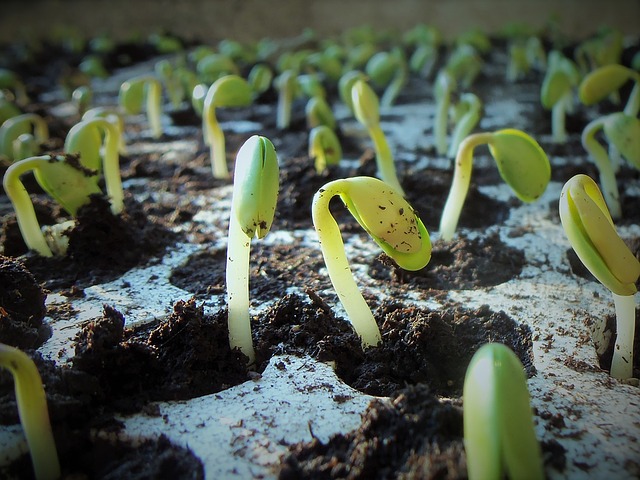March 26, 2020
By Lynda Kiernan
Crop biotech company Benson Hill announced its plans to release new ultra-high protein soybean varieties for the 2021 season that will be the first commercially available soybeans to effectively replace soy protein concentrate via traditional soybean crushing.
This innovative ability will allow manufacturers to eliminate costly, inefficient, and water-intensive steps from processing methods across the food, animal feed, and aquaculture industries.
“The natural genetic diversity of plants is one of the most powerful sources of product differentiation for companies driving the modern food system,” said Matt Crisp, CEO, Benson Hill. “Our Ultra-High Protein portfolio and channel capabilities enable Benson Hill to meet customers where they are and empower innovators with cost-effective, scalable solutions.”
The launch of the varieties, which were developed using traditional breeding methods, allowing non-GMO certification and unrestricted use in the U.S. and export markets such as the EU – will be conducted through the company’s Benson Hill Seeds division, launched in December 2019.
The division’s portfolio includes cutting-edge seed varieties offering superior protein and oil profiles, greater feed digestibility ratios, low trypsin inhibitor levels, and other qualities sought after by high-volume end users. One such offering is the eMerge Genetics portfolio of products – an internationally known portfolio of non-GMO soybean varieties that are non-GMO verified for sale in all markets, including the EU.
“Benson Hill Seeds will continue to deliver the non-GMO eMerge portfolio as well as new offerings explicitly designed to benefit both farmers and consumers,” said Jeff Johnson, president of Benson Hill Seeds, in December 2019. “Our focus is to expand the product choices and facilitate transparency that growers and distributors are requesting to fully leverage these new market opportunities.”
Forecasts state that global protein consumption is expected to climb at a compounded annual growth rate (CAGR) of 1.7 percent, reaching 943 million tons by 2054, according to Lux Research. Of this, less than 1 percent is currently derived from non-animal sources, however, experts including the UN FAO, predict that demand for non-animal-based protein has the potential to account for between 10 and 20 percent of growing demand, which would translate to the need for as much as 200 million tons of plant protein per year.
“In the next 10 years, the projection is that the alternative meat market will be about $140 billion. We know that soybean is the No.1 protein source to meet that market demand. For us, it’s matter of how quickly can we scale these lines in order to help contribute to meeting it,” Crisp told the St. Louis Business Journal.
This wave of preference for plant-based proteins by consumers, combined with a deepening knowledge about the food supply chain, has resulted in consumers not only wanting more plant-based proteins in their own diets, but looking for certain attributes in the diet of the chickens that lay their eggs, and the livestock that are raised for consumption. These shifts are opening a widow for disruption for businesses like Benson Hill Seeds that have the detailed technology to meet these demands.
“Athletes, active people and consumers who want plant-based options are interested in high-quality protein food choices sourced from simple plant-based ingredients,” said Leslie Bonci, sports dietitian to the Kansas City Chiefs and the XFL. “Soy is the best single source of plant-based protein that contains sufficient amounts of all essential amino acids, to maximize nutrition and health.”
Innovation in soybean seed development over the past decades has focused more directly on improving yields, while protein content has decreased, according to David Iverson, United Soybean Board meal target area coordinator and South Dakota farmer.
However, Benson Hill’s seed-to-shelf innovation pipeline is being developed through its CropOS™ platform that uses proprietary phenotyping, predictive breeding, and environmental modeling algorithms to allow Benson Hill’s plant breeders to optimize the protein content in its soy varieties, and to accelerate the path to market.
“These Ultra-High Protein varieties demonstrate how we can work together via soy checkoff investments to improve protein content for end-users,” said Iverson. “We continue to work with public and private partners, including Benson Hill, to serve as a catalyst to enable new technology, farmer choice, and innovation across our soybean industry.”
Benson Hill Seeds is seeking farmers to commit to planting a minimum of 500 acres to participate in a closed-loop, identity-preserved launch that is initially expected to total 20,000 acres in 2021, but expand tenfold the following year to 200,000 acres.
– Lynda Kiernan is Editor with GAI Media and daily contributor to the GAI News and Agtech Intel platforms. If you would like to submit a contribution for consideration, please contact Ms. Kiernan at lkiernan@globalaginvesting.

Let GAI News inform your engagement in the agriculture sector.
GAI News provides crucial and timely news and insight to help you stay ahead of critical agricultural trends through free delivery of two weekly newsletters, Ag Investing Weekly and AgTech Intel.




